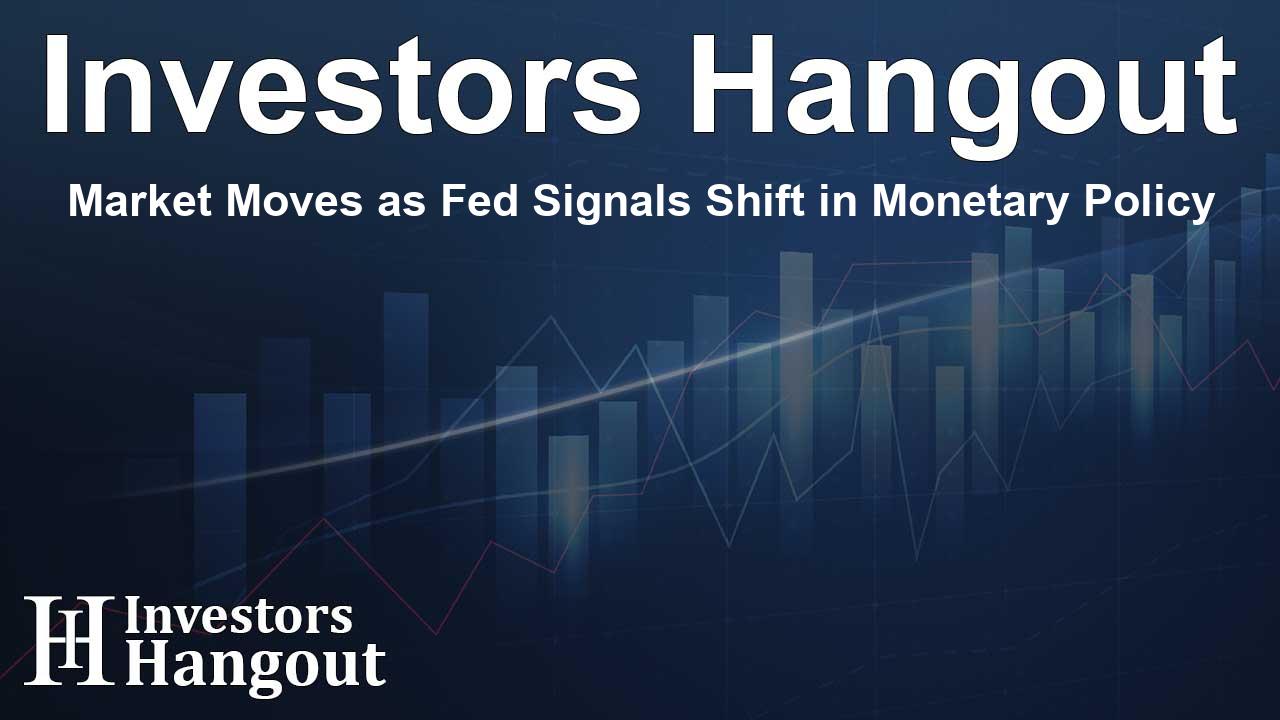Market Moves as Fed Signals Shift in Monetary Policy

Market Reactions to Federal Reserve's Policy Adjustments
U.S. stock index futures experienced a minor dip recently, pausing from a notable rally where Wall Street's main indexes achieved significant weekly gains. This upward momentum followed the Federal Reserve's pivotal stance on monetary policy, which set the stage for renewed investor confidence earlier this week.
In the previous trading session, the S&P 500 marked its eighth gain in nine days, reaching an all-time high that surpassed a previous record from mid-summer. Meanwhile, the Dow Jones Industrial Average not only crossed the critical psychological level of 42,000 points but also attained a landmark peak.
With both the S&P 500 and the tech-heavy Nasdaq poised for weekly increases of over 1%, market sentiment is notably optimistic. Given historical trends, this performance in September is particularly striking as it typically sees lower equity performance.
As market observers assess the situation at 5:43 a.m. ET, Dow E-minis registered a decline of 12 points, approximately 0.03%. S&P 500 E-minis slipped by 14 points or 0.24%, while Nasdaq 100 E-minis fell by 75 points, corresponding to 0.37%.
Investor Optimism and Fed Insights
The market’s positive reaction stemmed from the Fed initiating its easing cycle with a sizable, albeit anticipated, 50-basis-point cut. This move came with assurances from the central bank of potential further reductions and a commitment to sustaining economic growth alongside low unemployment and inflation rates.
Amidst a backdrop of minimal economic data this week, investor focus shifted toward comments expected from Philadelphia Fed President Patrick Harker. Participants are eager for insights regarding future policy direction and its implications for the broader economic landscape.
Anticipation of Future Rate Adjustments
Currently, traders project a 59.1% likelihood that the Fed will implement a 25-basis-point reduction in November, according to insights from the CME Group's FedWatch tool. There is also an expectation of cumulative rate reductions amounting to 72 basis points by the end of the year, reflective of broader market projections.
Market Volatility on the Horizon
Investors brace for potential volatility, especially due to the upcoming 'triple witching' event. This phenomenon, occurring on the third Friday of the last month of each quarter, involves the expiration of options and futures that are tied to stock indexes, creating the potential for heightened market movements.
Amid this backdrop, specific stocks are drawing attention for their movements. FedEx’s shares dropped sharply by 13% following the logistics giant's lower-than-expected quarterly profits and an adjustment to their full-year revenue forecasts. This cautious outlook echoes throughout the logistics sector, as UPS also saw a decline of 2.4%.
Corporate Developments Influencing Stock Movements
In contrast, Nike shares surged by 6.9% after the announcement that former executive Elliott Hill would return to the company, taking over as president and CEO from John Donahoe. This development sparked positive sentiment among investors, signaling a new leadership direction for the globally recognized sports brand.
Upcoming Index Rebalancing and Its Impact
Market analysts anticipate rebalancing within the main stock indexes. Stocks like Dell and Palantir Technologies faced downticks of 0.7% and 2.4%, respectively, as they are expected to enter the S&P 500 soon.
Globally, investors find themselves pondering the broader economic trajectory, weighing the likelihood of a robust economic boom against the risk of a downturn. Recent moves by central banks in the UK and Japan demonstrate a more cautious approach to interest rates in light of the Federal Reserve's recent actions.
Historical Context of Rate Cuts and Stock Performances
Historically, the performance of equities has improved during periods of rate cuts, as the reduction in borrowing costs generally relieves pressure on corporate profits. Yet, the current economic climate raises concerns, particularly given the S&P 500's valuations, which remain significantly elevated compared to its long-term averages.
Frequently Asked Questions
What is the impact of the Fed's monetary policy on the stock market?
The Fed's monetary policy can significantly influence stock market performance, typically leading to increased investor confidence and market rallies during easing phases.
Why did FedEx's stock drop recently?
FedEx's stock experienced a decline due to lower quarterly profits and a reduction in its full-year revenue forecast, which raised concerns among investors.
What is 'triple witching'?
Triple witching refers to the simultaneous expiration of stock options, index options, and stock futures, which can lead to increased market volatility.
How are interest rates expected to change by year-end?
Market expectations suggest that interest rates could decrease by approximately 72 basis points by the end of the year, reflecting potential Fed rate cuts.
What factors could lead to market volatility?
Market volatility can be triggered by events such as economic data releases, corporate earnings reports, and significant geopolitical developments.
About The Author
Contact Kelly Martin privately here. Or send an email with ATTN: Kelly Martin as the subject to contact@investorshangout.com.
About Investors Hangout
Investors Hangout is a leading online stock forum for financial discussion and learning, offering a wide range of free tools and resources. It draws in traders of all levels, who exchange market knowledge, investigate trading tactics, and keep an eye on industry developments in real time. Featuring financial articles, stock message boards, quotes, charts, company profiles, and live news updates. Through cooperative learning and a wealth of informational resources, it helps users from novices creating their first portfolios to experts honing their techniques. Join Investors Hangout today: https://investorshangout.com/
The content of this article is based on factual, publicly available information and does not represent legal, financial, or investment advice. Investors Hangout does not offer financial advice, and the author is not a licensed financial advisor. Consult a qualified advisor before making any financial or investment decisions based on this article. This article should not be considered advice to purchase, sell, or hold any securities or other investments. If any of the material provided here is inaccurate, please contact us for corrections.
